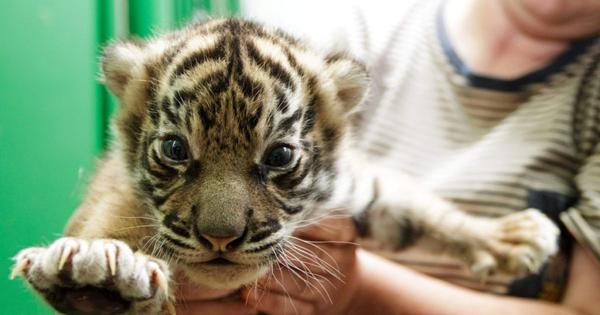iRozo 'tiger broth' drew attention to animal mortality. 'I thought it wasn't happening in the Czech Republic,' says the expert<
The animal trade is rampant all over the world. In poor countries, the effects of climate change often lead to cooperation with smugglers. The routes of illegal traffickers also go to Europe. "I always thought that this avoided the Czech Republic and it can't happen here. And suddenly we find out that we have a shop with rhino horns or tiger broths. It's a bit unbelievable, "says Pavla Polhová, an Interpol collaborator.
Share on LinkedInShare on FacebookShare on TwitterShare on Google+ PressPrintCopy url
Animal smuggling into the world, including the Czech Republic, is often a matter for international gangs working with third-country nationals. Either poor people or those who benefit from this business.
Overheat00:00 / 00:00
Listen to Martina Mašková's Context
In the case of the mediated trade in tiger products, the inspectors then brought to the trail of tiger smugglers the high mortality of young tigers in local farms.
But smugglers also choose simpler procedures and smaller animals. "Reptiles and parrots are the most popular, because they are the type of animals that can be easily hidden in a suitcase or in some cases even under clothes," adds Pavla Říhová, who works at the Institute for the Environment, Faculty of Science, Charles University and is an internationally recognized expert. in the field of combating the illegal trade in animals.
Journey from Africa
The greatest attention of smugglers in Africa is traditionally attracted by ape cubs, chimpanzees and gorillas.
A court in Liberec confirmed the guilt in the case of illegal killing of tigers and trafficking in their bodies

Read the article
Jana Hajduchová from the NGO EAGEL Network, which focuses on fighting smugglers in Central and West Africa, points out that finding smuggling routes is not easy: “Most of West Africa leads through a city or a country in transit. It is usually Turkey, it can be Egypt, Algeria. From there, they continue to Europe. "
Experts point to the importance of educating local communities in developing countries from which animals are transported. "I have a feeling that the countries of Central and West Africa are perhaps the worst off in terms of public awareness of the need to protect nature," Hajduchová thinks.
Rhino horns
"The trade in rhino horns is another thing that is huge and generates a lot of money," says Pavla Říhová. According to her, this is also a problem for Poland and Slovakia.
Taken from Plus
He also points out that the mentality of trophy hunting still persists in European culture and in the Czech Republic itself. Many Europeans go to the developing world to shoot.
"Paradoxically, there are many more species in captivity in Europe today than in the wild," warns Jan Dungel, a naturalist, animal painter and illustrator who travels to many countries around the world, especially in Latin America.
Palm trees and steaks
Naturalist Dungel points to the serious situation associated with deforestation in areas where smuggled animals live, especially the problem of habitat destruction due to the profitable oil palm. According to him, he will probably move from Latin America to Africa very quickly.
Unveils tiger slaughter, now CITES team is ending. Gangs of animal smugglers will have a free field, experts warn
Read the article
"There is nothing to stop African forests from turning into oil palm plantations," Dungel fears.
"It's also an area of food that is increasingly involved in animal smuggling. There I see great opportunities for us Europeans, for example in Prague I can get more and more Argentinian or Brazilian steak, "adds the naturalist. He also projects respect for nature into his travel habits.
Listen to the entire Context Plus about animal smuggling. Questions to experts are asked by Martina Mašková.
Martina MaškováShare on Google+ LinkedInPrintCopy url addressShort addressClose


 Tags:
Tags: Prev
Prev







